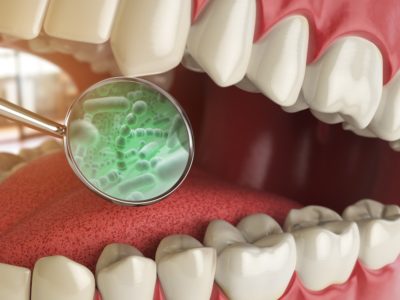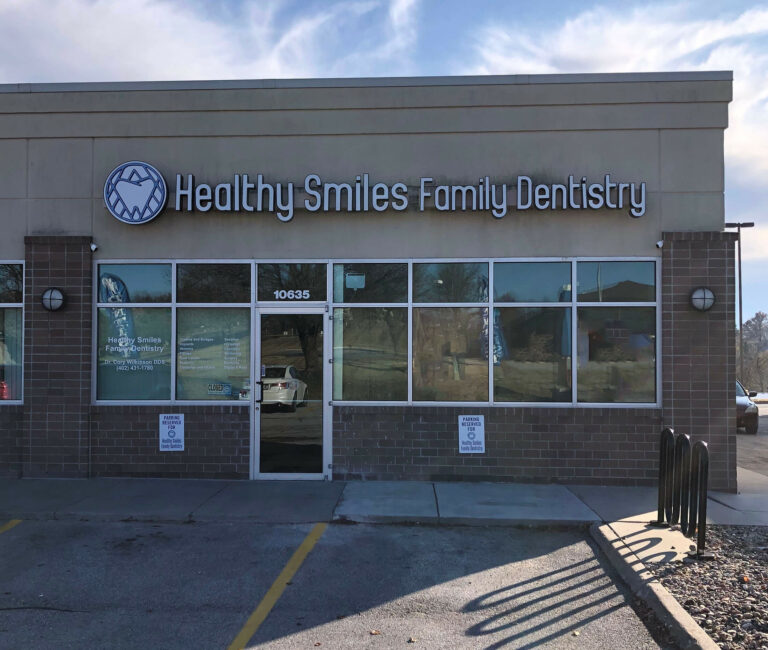Halitosis (Bad Breath) Treatment
Dealing with bad breathe? You needn't endure the persistent burden, a medical condition known as halitosis. There are ways to prevent it and eliminate bad breath once and for all.
Bad Breath/Halitosis Treatment
in Omaha, NE
An estimated 1 in 4 people suffer from chronic bad breath, also know as halitosis. It often causes embarrassment and anxiety, but it’s relatively easy to remedy.
Halitosis is caused by oral bacteria that is trapped in your mouth for an extended period. The effective approach to addressing it involves treating the root cause, which means eliminating the source of the unpleasant odor. Many over-the-counter solutions like mouthwash, mints, and gum merely provide temporary masking of the issue.
At Healthy Smiles Family Dentistry in Omaha, NE, halitosis is treated through professional cleanings and thorough oral cleanses, targeting those hard-to-reach areas often missed by regular brushing and flossing. In some cases, a deep cleaning procedure may be necessary to eliminate bacteria trapped beneath the gum line. Additionally, if the tongue is identified as the source of the smell, we can perform tongue scraping to address this source of odor.

-
What causes bad breath?
Bad breath, also known as halitosis, can result from poor dental health habits and can be made worse by the types of foods you eat. The most common cause of halitosis is inadequate dental hygiene. If particles of food are left in the mouth, their breakdown by bacteria produces sulfur compounds. If regular brushing, flossing and hydration doesn’t solve it, the best solution is to see your dentist for a deep cleaning.
-
What is the best chewing gum for bad breath?
Chewing gum can help remedy bad breath until you are able to see your dentist for a deep cleaning. The best chewing gum is sugar-free chewing gum. The sweetness of this gum comes from sweeteners and not sugar, so it doesn’t cause tooth decay.
In addition to masking bad breath, chewing sugar-free gum helps protect your teeth and gums between meals. Teeth are more at risk of an acid attack directly after you’ve eaten. Chewing gum after a meal helps reduce acid and the harm it may cause to your teeth. It prompts the mouth to produce more saliva, which is the mouth’s natural defense against acid.
-
Does smoking cause bad breath?
Many smokers suffer from bad breath from time-to-time. Heavy smokers are usually more frequently affected, but occasional smokers also get bad breath. Studies suggest that smokers experience a deterioration in sensitivity, so you may not even realize you have bad breath or be able to smell it on yourself.
Bad breath in smokers is caused by the tobacco itself—the lungs retain a measure of the tobacco smoke for a while after the cigarette has been extinguished and these chemicals remain in the mouth, making a greater case for halitosis.
Another side effect of smoking is dry mouth, caused by bacteria in the mouth from tobacco. Dry mouth has a significant correlation to smoking, which is also a leading cause of halitosis. Dry mouth not only affects breath, but also affects gingivitis, making an even bigger case for the importance of regular dental checkups if you are a smoker.
More Questions About Bad Breath Treatment?
If you have more questions about halitosis/bad breath treatment, please contact our office in Omaha, NE and we will be happy to discuss further.

